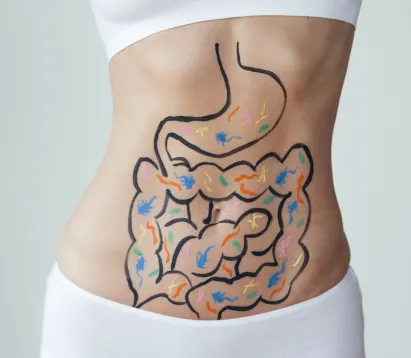Orthomolecular and Nutritional Consulting Toronto
Eat Correctly, Heal Naturally
Eat Correctly Heal Naturally
Orthomolecular and Nutritional Consulting Practitioner Toronto
My passion is to help women achieve vibrant health; the kind that allows you to live a full life and pursue the dreams that inspire you.
I work 1 to 1 with my clients, creating custom health protocols that combine the benefits of holistic nutrition and the power of homeopathy and biotherapeutic remedies to support the body.
Being a holistic nutritionist, I see clients for many different health issues, but my approach always factors in gut health as a basis for creating lasting wellbeing. In fact, in my practice, gut health is regarded as one of the pillars of whole-body health. This approach isn’t only about optimizing food choices and digestion, it is about taking care of your microbiome, the group of micro-organisms that live in your digestive tract.
Over my 20-year practice as a holistic nutritionist I have helped many women overcome challenging gut health issues such as food sensitivities, IBS and GERD. As well as gut related skin issues like psoriasis and hormonal based issues like the transition into menopause.
Whatever your health challenges, I would love to support you on your path to wellness.
Live Well,
Lara
Lara Rodin ROHP/RNCP, DSHomMed, FCHM
Hi, I'm Lara. I am a Registered Nutritional Consulting Practitioner
and a Registered Orthomolecular Health Practitioner.
How I Started My Journey in
Health and Wellness
I graduated in 1993 from Ryerson Theatre School with an Honours Diploma in Dance Performance with the hopes of a career in theatre. Unfortunately, my lifelong struggle with severe asthma, chronic digestive issues and depression left me unable to effectively pursue my dreams. This initiated my quest for healing and eventually that quest became a passion and a new career.
Lara Rodin ROHP/RNCP, DSHomMed, FCHM

Wellness Solutions and Plans
Experience Well-Being: Holistic, Personalized, Uniquely Yours
Personalized 1 to 1 Client Care
A Focus on Individualization
For women struggling with health issues, I offer 1 to 1 consultations via secure video call. Here I work to address health issues using the power of holistic nutrition, homeopathic remedies and biotherapeutics.

Inside Out Microbiome Makeover
3 Month Gut Health Programs
Receive a personalized gut health restoration program to address conditions like leaky gut syndrome, candida overgrowth or Irritable Bowel Syndrome (IBS) with my 3 month intensive program.

What my Clients are saying ...
“Working with Lara has been a positive experience from start to finish. She is very compassionate and understanding, friendly, and easy to talk to. I could tell that she genuinely cares.
I would recommend Lara to others.”
Sophia E.
"Lara has brought a positive, professional and reassuring energy to my difficult journey. After every appointment I have a refreshed sense of achievement and accomplishment.
I absolutely recommend Lara for any of your health concerns."
Andrea C.
"Lara has brought me peace of mind, a program that has stabilized my condition along with a list of food and recipes that I can play with in the kitchen.
She has my undying gratitude!"
Carol R.
The Blog
Cultivating Your Wellness: Insights and Guides

Stages of a Woman’s Life and the Microbiome
Stages of a Woman’s Life and the Microbiome
by Lara Rodin RNCP / ROHP, DSHomMed, FCHM
April 6, 2023
What stage in a woman’s life is the microbiome critically important to women’s health?
Is it:
A. Child-bearing years
B. Career Focus Years
C. Peri-menopause / Menopausal Years
Answer: All of the above!
March 8th we celebrated International Women’s Day.
This got me thinking about which point in a women’s life is the health of her microbiome – or her gut health – the most important?
Is it during the years she is bearing children or the years she is focusing on her career? And yes, I realize these often overlap.
What about later in life during the peri-menopause or menopausal years?
When I realized what the answer was it surprised me. So, I wanted to break this down for you.
Let’s take a moment and look at each time in a woman’s life.
First, the child bearing years, when typically a woman is in her late twenties to early/mid thirties. Does a woman’s microbiome have anything to do with starting a healthy family?
The answer is absolutely YES. Why? Because a woman passes on her microbiome to her child during the birthing process.
Did you know the intestines of a healthy newborn infant can be considered to be sterile and that it inherits its microbiome from its mother during childbirth process? Here is how it works: as the baby passes through the vaginal canal it picks up bacteria from its mother’s microbiome. This bacteria then begin to colonize the baby’s gastrointestinal tract.
So what happens if woman doesn’t have a healthy microbiome? What will she pass on to her child?
Studies have shown that if a child doesn’t have the right type of bacteria in their microbiome, they will have an increased risk of gastrointestinal conditions1, increased risk of allergy2 and increased risk of weight management difficulties3 later in life.
Even the type of birth affects the child’s microbiome, since a baby’s first flora is acquired from the environment into which it is born. If a woman has a C-section, the baby isn’t exposed to the vaginal bacteria at all and will instead be colonized by skin bacteria and the hospital environment flora, which isn’t the correct type necessary to developing a healthy gut microbiome.
A 2010 study showed vaginally delivered infants had bacteria that resembled their own mother’s vaginal microbiota (with Lactobacillus and Prevotella being the dominant species). In contrast, C-section infants acquired bacteria similar to those found on the skin surface (with Staphylococcus, Corynebacterium and Propionibacterium species dominant).4
Thankfully, mothers can now opt to do a vaginal microbial transfer for their C-section newborns by using their vaginal secretions prior to birth and inoculating the baby’s mouth, face and body after delivery.
What about the years spent focusing on career?
The thirties and forties are typically a highly stressful time in a woman’s life, as she is often juggling career and family.
Is maintaining a healthy microbiome important in this stage of life?
100%!
Because we now know that stress can actually negatively affect the health of a woman’s microbiome.
Scientists have discovered a bidirectional relationship between the gut microbiota and the brain, which they call the Microbiota-Gut-Brain (MGB) axis. Most people just refer to this now as the Gut Brain Axis (knowing it includes the role of the microbiome).
When we are stressed, our brains (specifically the Hypothalamic-Pituitary-Adrenal (HPA) axis) release stress hormones like cortisol that can alter gut flora and affect intestinal health.5 As an example, one study showed that healthy students that were undergoing stress had fewer lactobacilli present in their stools as compared to periods of less stress.6
However, the good news is that we also know a healthy microbiome can help offset the effects of stress and help maintain a healthy mood. We know this from studies that use probiotics as a proxy for a healthy microbiome.
One study in a group of healthy adults showed that supplementation with a specific combination of probiotics (Lactobacillus helveticus and Bifidobacterium longum) resulted in less depression and anxiety and a decrease of cortisol (our stress hormone) over time.7
Other studies show probiotics can affect neurotransmitters. For example, tryptophan is necessary for the production of serotonin. Serotonin is the one that we think of as our “happy” neurotransmitter.
A 2008 study showed a strain of Bifidobacteria can increase plasma tryptophan levels and since tryptophan is a precursor to serotonin this is great news! It went on to say this bifidobacteria strain can alter serotonin and dopamine turnover in areas of the brain associated with depression and anxiety.8
In fact, scientists are now actively researching and developing “psychobiotics” which are supplements that contain certain strains of probiotics that when ingested may produce health benefits in those suffering from mood disorders.
So, we now know a healthy microbiome is also important for a healthy mood and maintaining mental health in stressful times. But what about the peri-menopausal and menopausal years?
Typically, at this point in a woman’s life, she has had her family and her career is established, so does a healthy gut matter at this age?
And the answer is, absolutely it matters!
In menopause, as hormone levels decline, so do the protective effect of estrogen (specifically estradiol) on the immune system.9 This is why menopause is often a time of increased inflammation in a woman’s body. In fact, controlling inflammation is a key function of estrogen, so as its levels decline through peri-menopause and into menopause, inflammation in the woman’s body can increase.
This is due to estrogen’s effects on the production of pro-inflammatory cytokines such as Il 1, IL6 and TNFalpha.10
This makes sense when you think of it for a moment, issues like arthritis and other inflammation-based problems typically start later in a woman’s life as estrogen levels decline.
The important connection here is that dysbiosis ALSO promotes inflammation in the body.
Dysbiosis is when there is an imbalance in the ratio of bad (or pathogenic) bacteria to good bacteria in the gut. This situation can arise from a number of circumstances, antibiotic use being the number one cause.
This is an issue because the balance of favourable and unfavourable bacteria in the gut determines the extend to which pro-inflammatory molecules (such as NFkB) are made.11
So if you have dysbiosis creating inflammation going into menopause, which is already a time of greater inflammation due to low estrogen levels, then this could create a high inflammation state in the body which could mean more menopausal symptoms and a less comfortable transition.
In other words, if you have dysbiosis heading into menopause you might find you have more symptoms than other women with a healthy microbiome.
The good news is that friendly bacteria can inhibit this inflammation pathway. Yet another reason to care for your microbiome!
So, if we recap the stages of a woman’s life and how her microbiome affects each, we find:
The health of the microbiome during childbearing years is incredibly important as the baby inherits their mother’s microbiome during the birthing process.
A healthy gut is very important during the stressful family/career years, as stress can damage the microflora but a healthy microbiome can actually help offset the effects of stress on a woman’s body and mind.
Transition to menopause? The health of the microbiome is extremely important in menopause as dysbiosis can increase inflammation in the body at a time of heightened inflammation that can occur with declining estrogen levels.
This is why I created the Inside Out Microbiome Makeover for women. While it was originally created specifically for women with IBS, its also perfect for any woman, at any time, who wants to create lasting health from the inside out.
Stay turned for more details about the launch date.
Live Well,
Lara
DISCLAIMER
The content provided by Lara Rodin in the Inside Out Microbiome Makeover and / or Live Well With Lara website, social media and other public communications, is for general informational and educational purposes only. It is not intended to diagnose, treat, cure or prevent any health condition or disease. It may not be suitable for your individual needs. You agree to use the content at your own discretion and risk.
Please consult with your personal healthcare provider before following any of the information or suggestions contained in the Inside Out Microbiome Makeover and /or Live Well With Lara website, social media and other public communications, including changes to your diet, exercise, medications, supplements, or other health and lifestyle practices.
References:
AlFaleh et al, Cochrane Database of Systematic Reviews 16 March 2011. https://doi.org/10.1002/14651858.CD005496.pub3
Pistiner M, Gold DR, Abdulkerim H, Hoffman E, Celedón JC. Birth by cesarean section, allergic rhinitis, and allergic sensitization among children with a parental history of atopy. J Allergy Clin Immunol. 2008 Aug;122(2):274-9. doi: 10.1016/j.jaci.2008.05.007. Epub 2008 Jun 20. PMID: 18571710; PMCID: PMC4762591.
Marko Kalliomäki, Maria Carmen Collado, Seppo Salminen, Erika Isolauri, Early differences in fecal microbiota composition in children may predict overweight, The American Journal of Clinical Nutrition, Volume 87, Issue 3, March 2008, Pages 534–538, https://doi.org/10.1093/ajcn/87.3.534
Dominguez-Bello MG, Costello EK, Contreras M, Magris M, Hidalgo G, Fierer N, Knight R. Delivery mode shapes the acquisition and structure of the initial microbiota across multiple body habitats in newborns. Proc Natl Acad Sci U S A. 2010 Jun 29;107(26):11971-5. doi: 10.1073/pnas.1002601107. Epub 2010 Jun 21. PMID: 20566857; PMCID: PMC2900693.
Petra AI, Panagiotidou S, Hatziagelaki E, Stewart JM, Conti P, Theoharides TC. Gut-Microbiota-Brain Axis and Its Effect on Neuropsychiatric Disorders With Suspected Immune Dysregulation. Clin Ther. 2015 May 1;37(5):984-95. doi: 10.1016/j.clinthera.2015.04.002. PMID: 26046241; PMCID: PMC4458706
Dinan TG, Cryan JF. Melancholic microbes: a link between gut microbiota and depression? Neurogastroenterol Motil. 2013; 25(9):713–719. [PubMed: 23910373]
Messaoudi M, Lalonde R, Violle N, Javelot H, Desor D, Nejdi A, Bisson JF, Rougeot C, Pichelin M, Cazaubiel M, Cazaubiel JM. Assessment of psychotropic-like properties of a probiotic formulation (Lactobacillus helveticus R0052 and Bifidobacterium longum R0175) in rats and human subjects. Br J Nutr. 2011 Mar;105(5):755-64. doi: 10.1017/S0007114510004319. Epub 2010 Oct 26. PMID: 20974015.
Lieve Desbonnet, Lillian Garrett, Gerard Clarke, John Bienenstock, Timothy G. Dinan, The probiotic Bifidobacteria infantis: An assessment of potential antidepressant properties in the rat, Journal of Psychiatric Research, Volume 43, Issue 2, 2008, Pages 164-174, ISSN 0022-3956, https://doi.org/10.1016/j.jpsychires.2008.03.009.
Klein SL, Flanagan KL. Sex differences in immune responses. Nat Rev Immunol. 2016 Oct;16(10):626-38. doi: 10.1038/nri.2016.90. Epub 2016 Aug 22. PMID: 27546235.
Saltiki, Katerina & Alevizaki, Maria. (2006). Coronary heart disease in postmenopausal women; the role of endogenous estrogens and their receptors. Hormones (Athens, Greece). 6. 9-24.
Epithelial-cell recognition of commensal bacteria and maintenance of immune homeostasis in the gut. Nat Rev Immunol. 2008 June; 8(6): 411-20. Artis D.
Epithelial-cell recognition of commensal bacteria and maintenance of immune homeostasis in the gut. Nat Rev Immunol. 2008 June; 8(6): 411-20. Artis D.
Frequently Asked Questions
How do you conduct your consultations?
All consultations are done via Video Call on the Practice Better platform which is compliant with HIPAA, PIPEDA, PHIPA, and GDPR regulations. Clients are able to create a free Better portal to fill out forms and attend video calls.
What is the intake process?
The intake process consists of two appointments: one Initial Consultation Video Call AND one Follow Up Consultation Video Call. For intake, clients will be sent a link to join Better and create their client portal. Clients will be sent intake forms via Better to be completed online; a Client Agreement Form, an Informed Consent Form and an Intake Questionnaire. Once completed, clients will be able to book the date and time for the Initial Consultation Video Call. During the Initial Consultation Video Call, we will discuss the case and all relevant details. During the Follow Up Consultation, typically booked the following week, we will discuss the details of the wellness plan. If the client is booking a Program, additional intake steps may be needed as well.
What happens on the Initial Consultation Video Call?
During the Initial Consultation Video Call, I will do a detailed health history review and a nutritional assessment. We also discuss your current symptomatology, including your physical and your mental / emotional symptoms as all of this information is considered when creating a healing plan. As a nutritionist, I know that finding the correct diet for each person is essential as a foundation of health. When on this call I will review your dietary habits to see where there is room for improvement. When optimizing eating, I take into account blood type, endocrine / body type, food sensitivities and current health goals and issues.
What happens on the first Follow Up Video Call?
The first Follow Up is scheduled the week after the Initial Consultation to allow me to full review the case, research the best possible remedies and supplements and formulate a wellness plan. During this Follow Up Video Call, I will explain the protocol / wellness plan. This plan includes items that need to be addressed, supplements, homeopathics and/or biotherapeutic remedies indicated, as well as dietary adjustments. Clients are encouraged to ask questions, so they fully understand what is involved on their path to wellness.
What about subsequent visits?
In the subsequent visits, the protocol is reviewed and we discuss what changes have occurred over the course of the month and then, based on information, how to move forward. This process is based on my PEAR way of working with clients. PEAR stands for Plan, Execute, Assess and Revise. Here is how this works: I create a customized protocol “Plan” for you based on your health issues and with your input, you (as client) “Execute” the plan to the best of your ability, then each month at our Follow Up appointment we “Assess” the plan – what worked, what didn’t and any improvements gained and any issues that have come up. Then we Revise the plan based on this information and the process repeats again.
The thing to understand is this; the process of restoring health naturally is just that – a process that involves time and effort. As the body heals over time, the protocol must continually be adjusted to supply the body with what it needs to overcome the physiological issues that are limiting it. This process involves finding the correct diet, removing all obstacles to cure, helping the body deal with its toxic load, supporting organ systems and enzyme pathways and supplying the nutrients that it needs to rebuild. To do this, the subsequent Follow Up appointments are scheduled every 4 weeks. In each appointment, symptomatology is reviewed and adjustments are made as necessary to the protocol. Most people require monthly visits at first to expedite the healing process, then they go on to maintenance protocols with yearly check-ins.
Where do I get the remedies and supplements needed?
Because I do custom protocols, I will list in exactly which remedies and / or supplements I think are indicated in the wellness plan. This eliminated the guesswork of generic recommendations, choosing between different brands and trying to figure out dosing. Remedies indicated could be a supplement, homeopathic or biotherapeutic remedy. Clients are always free to purchase their supplements where ever they like; for example a natural dispensary like the Big Carrot or Smith’s Pharmacy here in Toronto, a neighbourhood health food store or on-line.
For convenience, I will also send clients a Fullscript recommendation which lists the all the products indicated. Fullscript is an on-line dispensary where clients can purchase their products for delivery and benefit from my client discount. In full disclosure, I receive a small commission for products purchased via Fullscript.
What if I don't live in Toronto?
No problem - all visits are done via Practice Better Video Calls which means you can meet me on your computer where ever you are!
Ready to Transform Your Health Journey?
Whether you're seeking nutritional guidance, homeopathic remedies, or a comprehensive detox plan, I'm here to support and guide you every step of the way.
Ready To Transform Your Health Journey?
Whether you're seeking individualized nutritional guidance, a complete gut health program or a comprehensive detox plan,
I'm here to support and guide you every step of the way.
Book a free call below to discuss how to transform your health journey!


Facebook
Instagram